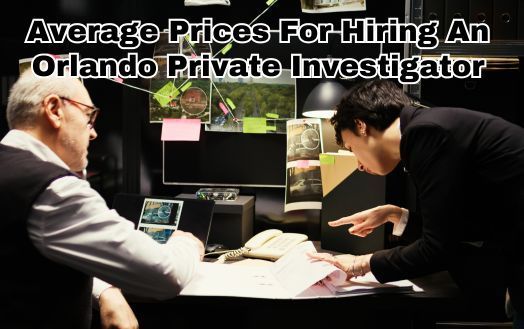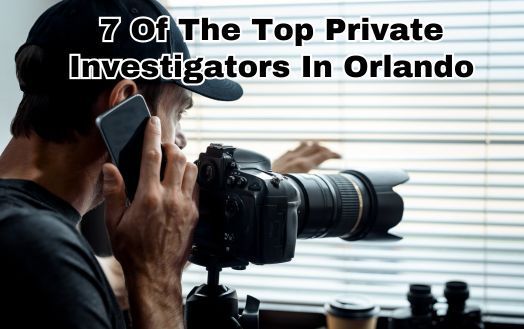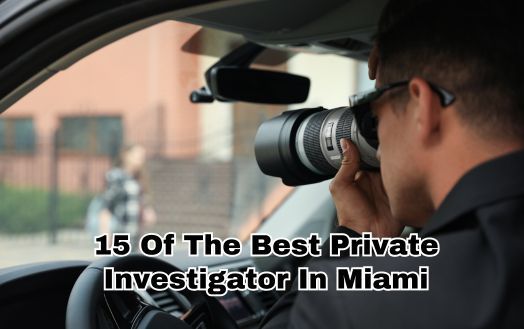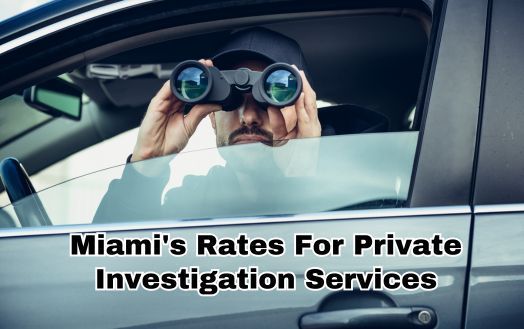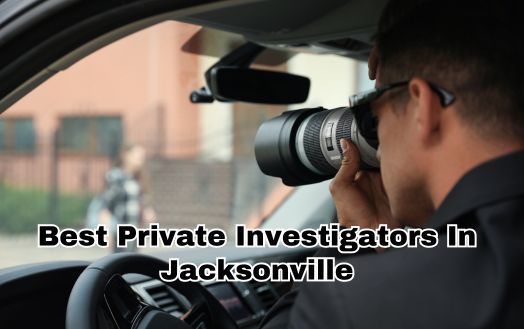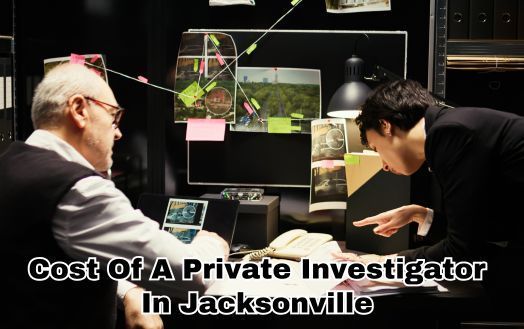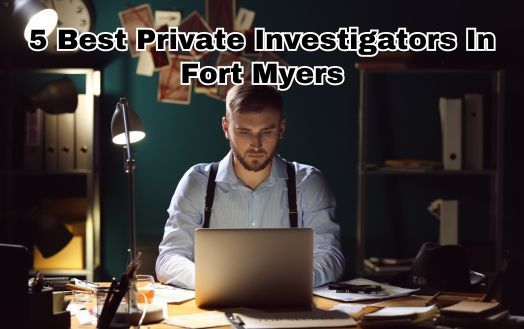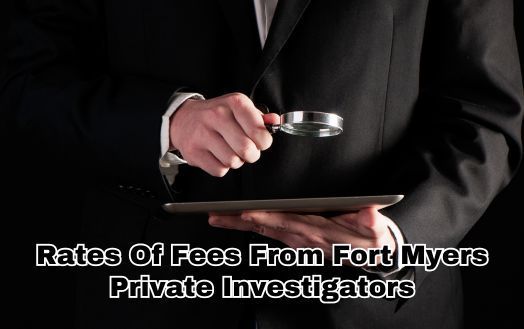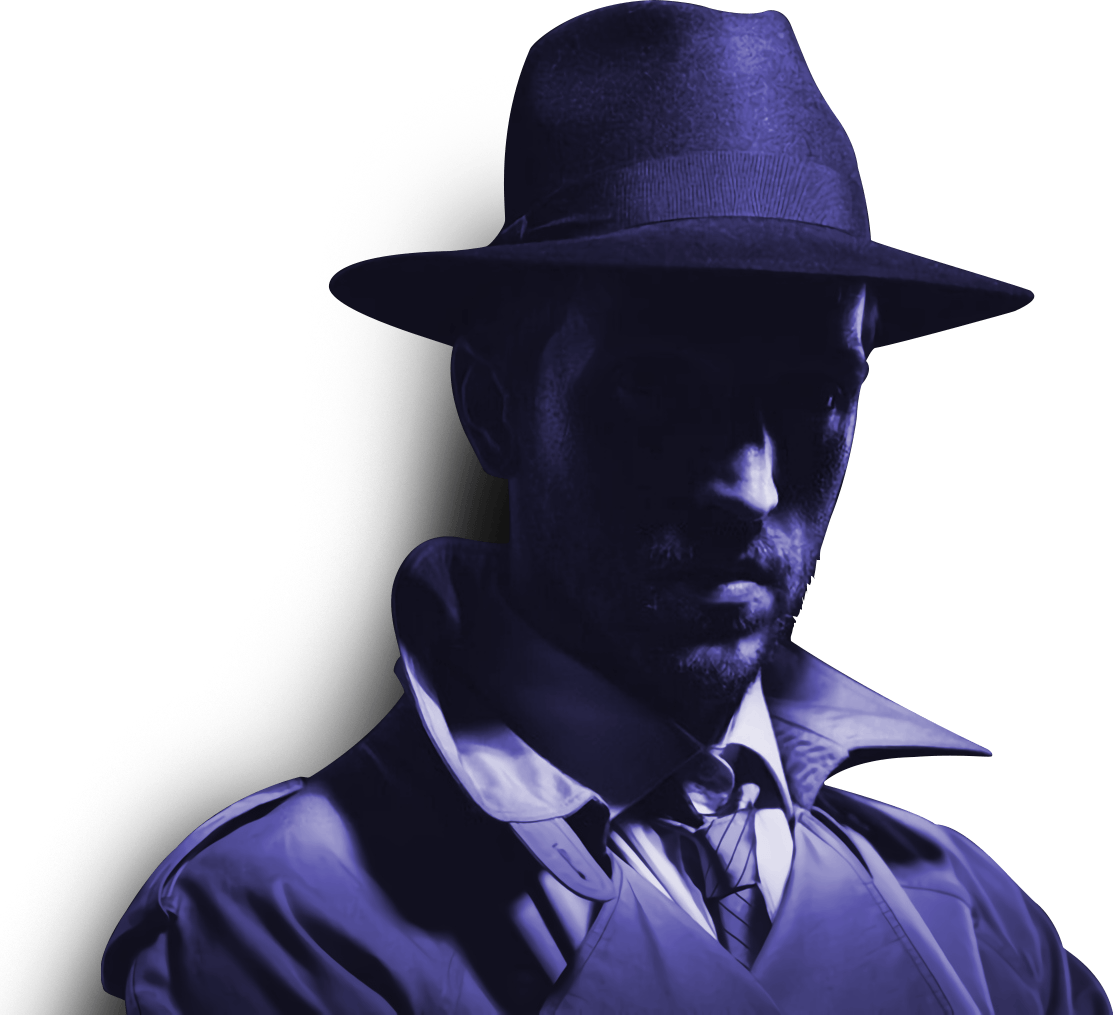Who Regulates Private Investigators In Florida

Who Regulates Private Investigators In Florida
As an aspiring private investigator in the state of Florida, I was curious to uncover the regulatory framework that governs this dynamic and know who regulates private investigators in Florida. In my quest for knowledge, I delved into the depths of Florida's regulatory landscape to understand who exactly is responsible for overseeing and regulating private investigators.
What I discovered was a fascinating blend of government authorities, industry standards, and best private practices that work together to ensure professionalism and integrity within this field.
Florida's regulatory authority over private investigators primarily rests with the Department of Agriculture and Consumer Services (DACS). This department oversees various industries, including private investigation, through its Division of Licensing. Working hand-in-hand with DACS is the Florida Association of Licensed Investigators (FALI), a professional organization that sets industry standards and promotes ethical conduct among its members. Together, these entities collaborate to establish licensing requirements, enforce relevant statutes and laws, and provide resources and support to both aspiring and experienced private investigators across the state.
Innovation is at the core of every successful endeavor, including the field of private investigation. With technology advancing at lightning speed, it is essential for professionals in this industry to embrace innovation as they navigate through complex cases and gather crucial information. From utilizing cutting-edge surveillance equipment to harnessing data analytics tools for enhanced investigative techniques, staying ahead in this fast-paced world requires a strong desire for innovation.
In this article, we will explore not only who regulates private detectives in Florida but also delve into industry trends and innovations that are shaping the future of this captivating profession. Get ready to embark on an exciting journey where regulations meet innovation!
Who Regulates Private Investigators
Do you know who regulates private investigators in Florida? It may surprise you to learn that the Department of Agriculture and Consumer Services is responsible for regulating these professionals. Yes, that's right - the same department that oversees farming and consumer protection also has a hand in ensuring that private investigators follow the rules.
In fact, they even have specific licensing requirements that private investigators must meet before they can legally operate in the state. Florida's regulatory authority over private investigators stems from state law. The Department of Agriculture and Consumer Services administers this oversight through its Division of Licensing. This division is tasked with evaluating applications, conducting background checks, and issuing licenses to qualified individuals. They ensure that anyone working as a private investigator in Florida meets certain standards of professionalism and ethics.
To become a licensed private investigator in Florida, there are several requirements you must fulfill. These include completing a minimum of two years of experience or obtaining an associate degree in criminal justice or a related field. Additionally, you must pass a comprehensive examination that tests your knowledge of investigative techniques and state laws.
With such strict regulations in place, it gives peace of mind to those seeking the services of a private investigator in Florida. Knowing that these professionals are not only skilled but also held to high standards by the Department of Agriculture and Consumer Services ensures reliability and accountability for their work.
Now let's delve deeper into Florida's regulatory authority over private detectives without skipping a beat. Florida's regulatory authority over private investigators is established by the Department of Agriculture and Consumer Services, which oversees the licensing, training, and ethical conduct of these professionals, leaving no room for compromise on their standards of practice.
Florida's Regulatory Authority
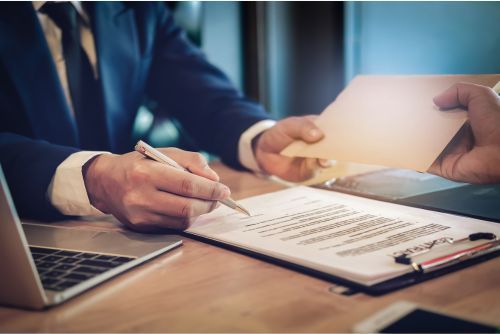
You should be aware that in the Sunshine State, there's a specific authority responsible for overseeing and ensuring compliance within the realm of private investigation. Florida's regulatory authority in this field falls under the jurisdiction of the Department of Business and Professional Regulation (DBPR), Division of Consumer Services.
This agency plays a crucial role in maintaining standards and protecting the interests of both private investigators and their clients.
To grab your attention, here are five important facts about how private investigators are regulated in Florida:
- The DBPR is responsible for licensing private investigators and ensuring that they meet certain qualifications before practicing in the state.
- Private investigators must undergo a thorough background check, including fingerprinting, to ensure their suitability for this profession.
- The DBPR has the power to investigate complaints against licensed private investigators and take disciplinary action if necessary.
- Regular audits are conducted by the DBPR to ensure that private investigators comply with all applicable laws and regulations.
- Continuing education requirements are imposed on licensed private investigators to ensure they stay up-to-date with industry advancements.
In an ever-evolving world where innovation is highly valued, it's essential for regulatory bodies like the DBPR to keep pace with technological advancements. By actively monitoring and regulating Florida's private investigation industry, they can promote innovation while also safeguarding consumer interests.
Now let's delve into another critical aspect of being a private investigator - experience and qualifications - which will further enhance our understanding of this fascinating field.
Experience And Qualifications
Imagine being immersed in a world filled with intrigue and danger, where only the most experienced and qualified individuals can navigate the treacherous path of private investigation. As private investigators in Florida, our experience and qualifications are crucial to ensuring that we uphold the highest standards of professionalism and ethics.
In order to be regulated by the state of Florida, private investigators must meet specific experience and requirements outlined by Florida's regulatory authority. To become a licensed private investigator in Florida, one must possess a minimum of two years of investigative experience or have an equivalent combination of education and experience. This ensures that those entering this field have acquired the necessary skills and knowledge to effectively carry out their duties. Additionally, applicants must undergo a thorough background check, including fingerprinting, to ensure they have no disqualifying criminal history.
Furthermore, individuals seeking licensure as private investigators in Florida must complete a comprehensive training program approved by the Department of Agriculture and Consumer Services (DACS). This includes coursework covering topics such as legal issues surrounding investigations, surveillance techniques, ethics, report writing, and more. By requiring this training, Florida ensures that its licensed private investigators are well-prepared to handle the challenges they may encounter in their work.
In addition to experience and training requirements, private investigators in Florida must also pass a written examination administered by DACS. This exam evaluates an individual's knowledge on various aspects related to conducting investigations within the state. Successful completion demonstrates not only an understanding of relevant statutes but also an ability to apply them effectively while adhering to ethical guidelines.
With our extensive experience and qualifications as regulated private investigators in Florida, we're equipped with the necessary skills and knowledge needed for successful investigations. However, it's important to understand that our work is guided not only by our expertise but also by relevant statutes and laws governing our profession within the state.
Relevant Statutes And Laws
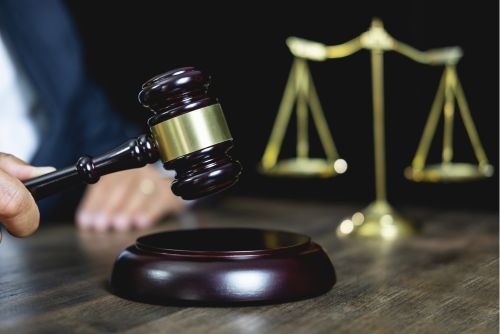
To effectively navigate the field of private investigation in Florida, it's essential to have a deep understanding of the pertinent statutes and laws that govern our profession within the state. The regulations put in place by the government play a crucial role in ensuring that private security officers operate ethically and within legal boundaries. Here are some key points to consider regarding the relevant statutes and laws:
- Chapter 493 of the Florida Statutes outlines various regulations specifically applicable to private investigators in Florida. It covers important aspects such as licensing requirements, prohibited activities, and disciplinary actions for non-compliance.
- Private investigators must familiarize themselves with the activities they're strictly prohibited from engaging in. These include acting as an attorney or providing legal advice without proper qualifications, trespassing on private property, wiretapping without consent, and obtaining information through fraudulent means.
- Understanding privacy laws is vital for any professional investigator. In Florida, there are specific regulations regarding surveillance, recording conversations, accessing personal information databases, and conducting background checks.
- Private investigators must adhere to a high standard of professional conduct while carrying out their duties. They should avoid conflicts of interest, maintain client confidentiality, respect boundaries when gathering evidence or conducting surveillance, and refrain from engaging in any activity that could harm someone's reputation unjustly.
- It's crucial for private investigators to stay informed about any new or amended statutes that may impact their work as the field of private investigation is constantly evolving alongside advancements in technology and changes in legislation.
With a solid understanding of these statutes and laws regulating private investigators in Florida, professionals can provide efficient services while maintaining compliance with all legal requirements. Moving forward into another chapter about 'licensing requirements,' it's important to note how these regulations directly influence who can enter this profession legally within our state.
Licensing Requirements
Licensing requirements in the state of Florida dictate who is eligible to legally pursue a career in the field of private investigation. The Department of Agriculture and Consumer Services is responsible for regulating private investigators in Florida.
To become a licensed private investigator, individuals must meet certain criteria set forth by the department. These requirements ensure that only qualified and trustworthy individuals are allowed to operate as private investigators in the state.
To obtain a license as a private investigator in Florida, applicants must be at least 18 years old and have a high school diploma or equivalent. They must also pass a written examination administered by the department, which tests their knowledge on various aspects of the profession. Additionally, applicants must undergo fingerprinting for a criminal background check.
Once these initial requirements are met, aspiring private investigators must complete an extensive training program approved by the department. This program covers topics such as surveillance techniques, legal ethics, and report writing skills. It ensures that licensed private investigators have the necessary knowledge and skills to conduct their investigations lawfully and effectively.
Licensing requirements play a crucial role in regulating private investigators in Florida. The Department of Agriculture and Consumer Services oversees this process to ensure that only qualified individuals can work in this field. By establishing minimum age requirements, educational qualifications, examinations, application, background checks, and training programs, they maintain high standards within the industry.
Obtaining information on licensed private investigators can provide peace of mind when seeking professional assistance with investigations or security matters without having to take any additional steps.
Obtaining Information On Private Investigators
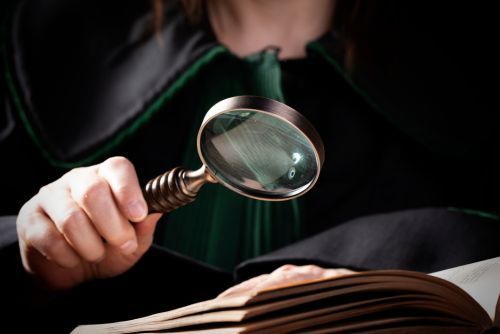
Looking for information on private investigators in Florida? You'll be glad to know that there are various resources available to help you find the right professional for your investigation or security needs.
Here are some ways you can obtain information on private investigators in Florida:
- The Florida Department of Agriculture and Consumer Services: This government agency is responsible for licensing and regulating private investigators in the state. Their website provides valuable information about licensed private investigators, including their contact details and areas of expertise.
- Online directories: There are several online directories specifically designed to help people find private investigators in Florida. These directories allow you to search for professionals based on location, specialization, and other criteria. They often provide detailed profiles with reviews and ratings from previous clients.
- Referrals: Word-of-mouth recommendations can be a great way to find a reliable private investigator. Talk to friends, family members, or colleagues who have previously hired a private investigator in Florida. They may be able to provide valuable insights and recommend someone they trust.
- Professional associations: Many licensed private investigators in Florida are members of professional associations such as the Florida Association of Licensed Investigators (FALI) or the National Association of Legal Investigators (NALI). These associations often have directories or referral services that can help you connect with qualified professionals.
By utilizing these resources, you can gather important information on alibi investigations, locate a licensed private investigator in Florida, learn more about different types of private investigations, and ultimately make an informed decision when hiring a professional.
Florida's Private Investigator Associations
Florida is home to various professional associations that bring together licensed investigators and provide valuable resources for those seeking their services. One prominent association is the Florida Association of Licensed Private Investigators (FALPI). FALPI was established in 1994 and has since become a trusted organization within the private investigative community. It serves as a platform for networking, education, and advocacy for its members.
As a member of FALPI, licensed private investigators in Florida gain access to a vast network of professionals who can offer guidance, support, and collaboration on cases. Another notable association is the Florida Association of Private Investigators (FAPI). FAPI was founded in 1996 with a mission to promote professionalism and uphold ethical standards within the industry. This organization provides its members with educational opportunities, legislative updates, and networking events. Being part of FAPI allows licensed private investigators in Florida to stay informed about current trends, technologies, and best practices in the field.
In addition to these associations, private investigators in Florida can also benefit from joining the Professional Investigators Network of Florida (PINFL). PINFL aims to foster cooperation among private investigators by providing a platform for sharing information and resources. Members have access to an online forum where they can discuss case strategies, seek advice from experienced professionals, or even collaborate on complex investigations. This network enhances professional development while fostering innovation within the industry.
Transitioning into the subsequent section about training and education, these associations not only offer valuable resources but also serve as platforms for ongoing training and education opportunities. By participating in seminars, workshops, and conferences organized by these associations, licensed private investigator Florida can stay updated on the latest investigative techniques and legal developments. Now let's explore how aspiring private investigators can obtain training and education in order to enter this exciting profession.
Training And Education

To become a skilled private investigator, you'll need to invest in comprehensive training and education. Knowing who regulates private investigators in Florida is important. Obtaining the necessary knowledge and skills is crucial for success in this field.
In Florida, individuals are required to complete specific training requirements before they can obtain a private investigator license. Here are four key aspects of training and education that aspiring investigators should be aware of:
- License Requirements: Before pursuing a career as a private investigator in Florida, it's important to understand the license requirements set by the state. To qualify for a licensed private investigator position, individuals must be at least 18 years old and have good moral character. They must also possess either two years of investigative experience or have completed specific educational requirements.
- Florida Law: Familiarizing oneself with license Florida law is vital for any licensed private investigator. Understanding legal statutes and regulations provides investigators with the knowledge needed to conduct their work within the boundaries of the law. It also ensures they are equipped to handle various legal situations that may arise during investigations.
- Training Programs: Several institutions offer specialized training programs for aspiring private investigators in Florida. These programs cover various topics such as surveillance techniques, evidence collection, interviewing skills, report writing, and ethics. Completing these courses not only enhances an individual's investigative abilities but also increases their chances of obtaining a license.
- Continuing Education: Once licensed, it's crucial for private investigators to stay updated on industry trends and advancements through continuing education opportunities. This helps them remain competent in their field and adapt to changing technologies and techniques used in investigations.
As we delve into the next section about 'code of ethics,' it becomes evident that ethical conduct is closely intertwined with proper training and education for licensed private investigators in Florida. Therefore, it's imperative that licensed private investigators in Florida receive comprehensive training and education to ensure they possess the necessary knowledge and skills to uphold ethical standards in their profession. This includes staying up-to-date with the latest technological advancements and investigative techniques to effectively carry out their duties while adhering to ethical guidelines.
Code Of Ethics
Having a strong code of ethics is like having a moral compass that guides private investigators in their pursuit of justice and truth. As private investigators in Florida, we're regulated by the Department of Agriculture and Consumer Services. They've established a comprehensive code of ethics that outlines the principles and standards we must uphold in our profession.
This code ensures that we conduct ourselves ethically and professionally while providing our services to clients in different states.
The code of ethics for private investigators in Florida covers various aspects of our work. It emphasizes the importance of maintaining confidentiality and respecting the privacy rights of individuals. We're required to handle sensitive information with utmost care, ensuring it's only disclosed when necessary for legitimate purposes. Additionally, the code prohibits us from engaging in any illegal activities or unethical behavior during investigations.
Furthermore, the code highlights the importance of honesty and integrity in our interactions with clients, colleagues, and other parties involved in our cases. We must be transparent about our qualifications, fees, and limitations as private investigators. It's crucial for us to avoid conflicts of interest that may compromise our objectivity or create bias.
Adhering to this code not only helps protect the rights and interests of those involved but also maintains public trust in our profession. Clients rely on us to provide accurate information ethically gathered through lawful means. By following these ethical guidelines set forth by the Department of Agriculture and Consumer Services, we ensure that we meet these expectations.
As private investigators regulated by the Department of Agriculture and Consumer Services in Florida, we understand how essential it is to abide by a strong code of ethics. Upholding principles such as confidentiality, honesty, integrity, and avoiding conflicts of interest allows us to maintain professionalism while serving our clients' needs effectively.
Moving forward into complaints and disciplinary actions without missing a beat; it's important for private investigators to not only follow this ethical framework but also be aware that any violations can result in complaints being filed against them with regulatory bodies. The Department of Agriculture and Consumer Services has the authority to investigate such complaints and take disciplinary actions against violators. Therefore, it's crucial for private investigators in Florida to be well-versed in the code of ethics and ensure its strict adherence to avoid any potential consequences that may arise from ethical misconduct.
Complaints And Disciplinary Actions

Complaints and disciplinary actions can have significant consequences for private investigators who fail to adhere to the code of ethics. As the department that regulates private investigators in Florida, the Division of Licensing within the Department of Agriculture and Consumer Services takes complaints very seriously.
When a complaint is filed against a private investigator, it initiates an investigation by the division to determine if there has been a violation of the law or any unethical behavior. To ensure fairness and transparency in handling complaints, the Division of Licensing follows a structured process.
Here are some key aspects:
- Investigation: The division thoroughly investigates each complaint received, gathering evidence and conducting interviews with relevant parties involved. This ensures that all sides are heard and that no biases exist during the investigation.
- Disciplinary Actions: If it is determined that a private investigator has violated the code of ethics or engaged in unlawful practices, disciplinary actions may be taken. These can range from warnings or fines to require private license suspension or revocation. The severity of the action depends on the nature and extent of the violation.
- Appeals Process: Private investigators have the right to appeal any disciplinary action taken against them. This allows them an opportunity to present their case before an administrative panel or court if they believe they have been unjustly treated.
- Continuous Oversight: The Division of Licensing maintains ongoing oversight over licensed private investigators even after disciplinary actions have been taken. This ensures compliance with corrective measures imposed and helps prevent future violations.
By enforcing these regulations, Florida's Division of Licensing aims to protect both consumers and maintain high standards within its private investigation industry.
Moving forward into consumer protection measures, it is important to understand how these efforts contribute to safeguarding individuals seeking investigative services in Florida without compromising innovation within this evolving field.
Complaints and disciplinary actions serve as vital mechanisms for ensuring accountability among private investigators regulated by Florida's Department of Agriculture and Consumer Services. The division's commitment to investigating complaints thoroughly while providing opportunities for appeals reflects its dedication to maintaining a fair and transparent process.
Through continuous oversight, the division ensures that private investigators adhere to ethical standards and comply with corrective measures, thereby safeguarding consumers' interests.
As we delve into consumer protection measures, it becomes evident how these regulatory efforts foster innovation in an industry where trust and reliability are paramount.
Consumer Protection Measures
Consumer protection measures in Florida play a crucial role in safeguarding individuals seeking investigative services and ensuring their interests are prioritized. The state government has established various regulations to protect consumers from unethical practices by private investigators. These measures aim to create a fair and transparent environment for both the clients and the investigators.
One important consumer protection measure is the licensing requirement for private investigators. Florida law mandates that all private investigators must obtain a license from the Department of Agriculture and Consumer Services (FDACS). This ensures that only qualified individuals with proper training and background checks can work as private investigators. By regulating who can become an investigator, the state helps protect consumers from unqualified or dishonest practitioners.
Another key aspect of consumer protection is the enforcement of ethical standards. Private investigators in Florida are required to adhere to a strict code of conduct set forth by FDACS. This code includes guidelines on confidentiality, honesty, and professionalism when dealing with clients' personal information. Violations of these ethical standards can result in disciplinary actions such as fines, license suspension, or even revocation.
In addition to licensing requirements and ethical standards, Florida also provides avenues for consumers to file complaints against private investigators who engage in fraudulent or deceptive practices. The Division of Consumer Services within FDACS handles these complaints and conducts investigations into alleged violations. Consumers can report any concerns they have regarding an investigator's conduct or performance, allowing regulatory authorities to take appropriate actions to protect their rights.
Consumer protection measures ensure that individuals seeking investigative services in Florida are not taken advantage of by unscrupulous practitioners. By establishing licensing requirements, enforcing ethical standards, and providing complaint mechanisms, the state safeguards consumers' interests while promoting transparency within the industry.
In the next section about 'industry standards and best practices,' we will explore how these measures contribute to maintaining high-quality services for clients seeking private investigation assistance without compromising their privacy or security needs.
Industry Standards And Best Practices
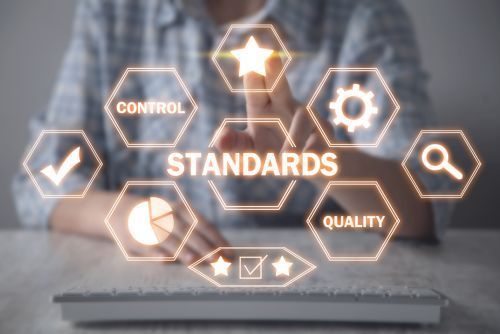
To ensure the highest quality of service and maintain client satisfaction, it's essential for private investigators in Florida to adhere to industry standards and best practices. By following these guidelines, private investigators can establish themselves as trustworthy professionals in their field.
Here are some key industry standards and best practices that regulate the conduct of private investigators in Florida:
- Conduct thorough background checks: Private investigators need to conduct comprehensive background checks on individuals they investigate or gather information about. This includes verifying identities, checking criminal records, and confirming employment history. Adhering to this privacy policy standard ensures accurate and reliable information.
- Maintain confidentiality: Confidentiality is a fundamental aspect of the private investigation profession. Investigators must protect their clients' privacy by keeping all sensitive information confidential and not disclosing it without proper authorization. This ensures that clients trust their investigator with sensitive matters.
These industry standards help create a framework within which private investigators in Florida operate, ensuring professionalism, integrity, and accountability. Following these best practices allows them to provide high-quality services while maintaining ethical conduct.
Adherence to industry standards and best practices is crucial for private investigators in Florida to excel in their profession. By conducting thorough background checks and maintaining strict confidentiality, they can establish trust with their clients while delivering accurate results. These guidelines not only benefit individual investigators but also contribute to an overall improvement in the reputation of the industry as a whole.
Collaboration With Law Enforcement
Now that we've explored the agency and industry standards and best practices for private investigators in Florida, let's delve into their collaboration with law enforcement.
This partnership between private investigators and law enforcement agencies is crucial in ensuring a safer and more secure society. Private investigators often work closely with law enforcement officials to gather evidence, conduct surveillance, and provide support in criminal investigations. By sharing information and resources, they can enhance the effectiveness of their operations and increase the chances of solving cases successfully. This collaboration allows for a seamless exchange of private investigative skills, expertise, and knowledge that ultimately benefits both parties involved.
In Florida, the regulation of private investigators ensures that they adhere to strict guidelines when collaborating with law enforcement. The Florida Department of Agriculture and Consumer Services (FDACS) oversees the licensing and regulation of private investigators in the state. They ensure that these professionals meet specific qualifications, undergo thorough background checks, and maintain ethical standards while working alongside law enforcement agencies.
By regulating private investigators' actions when collaborating with law enforcement, Florida ensures accountability within the profession. It helps maintain public trust in both private investigators and law enforcement agencies by ensuring that investigations are conducted ethically and within legal boundaries.
As we move forward into exploring industry trends and innovations in the field of private investigation, it's essential to recognize how collaboration with law enforcement continues to evolve. Technological advancements have revolutionized investigative techniques, allowing for more efficient data gathering, analysis, and communication between private investigators and law enforcement officials. These innovations enable them to work together seamlessly on complex cases while maximizing their collective impact.
Industry Trends And Innovations

Explore the fascinating developments shaping the future of private investigation in Florida as you delve into industry trends and innovations. The field of private investigation is constantly evolving, driven by advancements in technology and changes in societal needs.
Here are three exciting industry trends and innovations that are revolutionizing investigative work in Florida:
- Integration of Artificial Intelligence (AI): AI technologies are being increasingly utilized by private investigators to streamline their work processes and enhance efficiency. From automated data analysis to facial recognition software, AI tools help investigators sift through vast amounts of information quickly and identify patterns or connections that might otherwise go unnoticed. This integration of AI not only saves time but also improves the accuracy and effectiveness of investigations.
- Use of Big Data: With the advent of digitalization, massive amounts of data are generated every day. Private investigators have recognized the value that this data holds for their work. By harnessing big data analytics techniques, they can now extract valuable insights from various sources such as social media platforms, financial records, or public databases. This allows them to piece together a more comprehensive picture during an investigation, uncover hidden connections between individuals or events, and ultimately provide more accurate findings.
- Embracing Cybersecurity Expertise: As cybercrime continues to rise, private investigators in Florida are adapting by developing cybersecurity expertise alongside traditional private investigative skills. They recognize the importance of understanding digital threats and vulnerabilities when conducting investigations involving electronic devices or online activities. By staying updated on the latest cybersecurity practices and tools, licensed private investigators can effectively navigate this new landscape while protecting sensitive information.
As industry trends and innovations continue to shape the world of private investigation in Florida, it's essential for professionals to stay informed about these advancements to remain competitive in their field. These developments enable licensed private investigators to conduct more efficient investigations using cutting-edge technologies like AI and big data analytics while ensuring they have a solid grasp on cybersecurity concerns.
Resources And Support For Private Investigators
Discover the extensive range of resources and support available to help me excel in my role as a private investigator in the dynamic field of Florida's investigative work. As a private investigator, I understand the importance of staying up-to-date with the latest tools and techniques. Thankfully, there are numerous resources at my disposal to enhance my skills and stay ahead of the game.
One valuable resource for private investigators in Florida is professional associations. These organizations provide networking opportunities, training seminars, and access to industry experts. For example, the Florida Association of Licensed Investigators offers conferences where I can learn from experienced professionals and gain insights into emerging trends.
Additionally, these associations often have online forums or discussion boards where I can connect with other investigators, exchange ideas, and seek advice on challenging cases.
In addition to professional associations, technology plays a crucial role in supporting private investigators. There are various software applications specifically designed for investigative work that can streamline processes such as case management, evidence collection and analysis, and report generation. These tools not only save time but also improve accuracy and efficiency in my investigations.
Another essential resource is continuing education programs tailored for private investigators. Many institutions offer courses on topics such as surveillance techniques, legal updates relevant to investigative work, forensic science advancements, and ethical considerations in intelligence gathering. By participating in these programs regularly, I ensure that my knowledge remains current while honing my skills to become a more effective investigator.
Lastly, mentorship programs provide invaluable support for aspiring or less experienced private investigators. Connecting with seasoned professionals who have years of experience under their belt allows me to learn from their expertise firsthand. They can provide guidance on best practices in conducting investigations specific to Florida's laws and regulations while offering insights into successful strategies they have employed throughout their careers.
There is no shortage of resources and support available for private investigators looking to excel in their field within Florida's dynamic landscape. From professional associations offering networking opportunities to technological advancements tailored for investigative work, there are numerous tools at my disposal. Continuing education programs and mentorship opportunities further enhance my skills and knowledge base. By taking advantage of these resources, I can stay current with industry trends and innovations while delivering exceptional results in my role as a private investigator.
Final Thoughts
In conclusion, as a private investigator in Florida, it's crucial to know who regulates private investigators in Florida in order to ensure compliance and maintain the highest standards of professionalism.
The regulatory authority in Florida lies with the Department of Agriculture and Consumer Services' Division of Licensing. They oversee licensing requirements, industry standards, and best practices for private investigators.
It's important for private investigators to not only meet the necessary experience and qualification criteria but also stay updated on relevant statutes and laws that govern our work. By doing so, we can continue to provide effective services while adhering to legal guidelines.
Additionally, collaboration with law enforcement agencies is key to successfully resolving cases and protecting the interests of our clients.
Furthermore, staying informed about industry trends and innovations can help us stay ahead in this ever-evolving field. Utilizing new technologies and techniques can improve efficiency and accuracy in investigations.
Lastly, there are numerous resources and support available for private investigators in Florida such as professional associations, training programs, and networking opportunities.
Overall, by understanding the regulatory landscape, meeting licensing requirements, staying updated on laws, collaborating with law enforcement agencies, embracing industry trends and innovations, as well as utilizing available resources – we can thrive as private investigators in Florida while upholding the highest standards of professionalism.
Frequently Asked Questions
What Are The Steps To Become A Licensed Private Investigator In Florida?
To become a licensed private investigator in Florida, there are several steps you need to follow.
First, you must meet the minimum requirements set by the Florida Department of Agriculture and Consumer Services, which include being at least 18 years old and having a high school diploma or equivalent.
Then, you will need to complete a 40-hour training course from an approved provider.
After that, you must pass a state examination administered by the department.
Once you have passed the exam, you can apply for your license and submit all the required fee and documents. It's important to note that maintaining your license also requires completing continuing education courses to stay up-to-date with the latest techniques and regulations in the field.
Becoming a licensed private investigator in Florida is an exciting journey that allows for constant learning and growth in this ever-evolving industry.
How Can I Find Information About A Specific Private Investigator's Disciplinary Actions?
To find information about a specific private investigator's disciplinary actions, I would recommend conducting a thorough search on the Florida Department of Agriculture and Consumer Services website. They oversee and regulate private investigators in Florida, so they should have a record of any disciplinary actions taken against them.
Additionally, you can check with professional organizations such as the Florida Association of Licensed Investigators or the National Council of Investigation and Security Services for any relevant information.
It's crucial to stay informed and make sure that the private investigator you're considering has a clean track record to ensure trustworthiness and professionalism in their services.
Are Private Investigators Required To Adhere To A Specific Code Of Ethics In Florida?
Yes, private investigators in Florida are required to adhere to a specific code of ethics. As a licensed private investigator myself, I understand the importance of maintaining high ethical standards in our profession.
The Florida Department of Agriculture and Consumer Services oversees the regulation and licensing of private investigators in the state. They have established a comprehensive set of rules and regulations that govern our conduct, ensuring that we operate with integrity and professionalism.
These guidelines cover areas such as confidentiality, honesty, respect for individual rights, and proper use of investigative techniques. By adhering to these ethical standards, we strive to provide reliable and trustworthy services to our clients while upholding the reputation of the private investigation industry in Florida.
What Consumer Protection Measures Are In Place For Individuals Hiring Private Investigators In Florida?
When hiring a private investigator in Florida, it's important to know that there are consumer protection measures in place to ensure your safety and satisfaction.
These measures include licensing requirements for private investigators, which are regulated by the Department of Agriculture and Consumer Services Division of Licensing. This means that individuals offering investigative services must meet certain qualifications and adhere to specific ethical standards.
Additionally, there are laws in place that prohibit deceptive practices and require transparency in billing and contracts. By implementing these measures, Florida aims to protect consumers from fraudulent or unethical behavior while promoting innovation within the private investigation industry.
Are There Any Industry Trends Or Innovations In The Private Investigation Field In Florida?
As a private investigator in Florida, I'm constantly on the lookout for industry trends and innovations that can enhance my work.
One exciting trend that I've noticed is the growing use of technology in our field. From advanced surveillance equipment to sophisticated data analysis tools, technology is revolutionizing how we gather information and solve cases.
Additionally, there's been an increasing focus on specialized investigations, such as cybercrime and digital forensics, reflecting the changing nature of criminal activity in the modern world.
These advancements not only make our work more efficient, but they also enable us to provide more accurate and comprehensive results to our clients.
It's an exciting time to be a private investigator in Florida, with these industry trends shaping the future of our profession.


